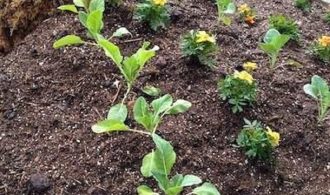Organic gardening is a quickly growing trend in North America. It’s appealing to people who want healthy, cheaper alternatives to expensive fruit and vegetables from the market that are often imported from who-knows-where and sprayed with who-knows-what. Organic gardening, however, is a tricky game, and requires much patience and attention. You must always be organized, prepared and attentive. Here are a few basic tips to get you started.
Move it around
It’s not called a “static” garden, so why keep it the same? An organic garden isn’t just a garden for organic veggies — it’s an organic, living thing unto itself. It has to constantly change and evolve.
You should mix up your garden layout at least once a year. Disease-bearing fungi grow in static plant plots, and can lay dormant in soil even after the plant’s removal, which could ruin your plot. Move things around to make sure you’re not letting any fungus get the best of your produce.
Also remember that while seeds need as much sunlight as possible, sprouted plants do not. They’ll dry out. Once your seeds have sprouted, move them to a shadier spot.
Don’t forget to change your watering schedule. Mark in a calendar how often you’re doing this, because it’s easy to lose track. Different plants need different amounts of water in different areas during different times of year. It’s entirely too complicated to explain here, but it’s important to research each plant’s watering needs and abide by them.
Mulch Ado About Something
Mulch is a key factor in any organic garden. It’s essentially a natural shield to protect the plant, made up of leaves, peat and straw, or anything else. Using these kinds of natural resources means you’re recycling the earth’s inherent nutrients.
It’s a wise idea to build up a small wall, only a few inches tall, of mulch around your plants. This will not only help keep nutrients and water packed in (so you don’t need to worry about flooding your plant with water), but it will also help block out weeds.
Other good ways to make natural compost are with food compost (another benefit — why throw it away?), dry leaves, twigs and grass.
Water, Water, Everywhere
Avoid cleaning products for your garden. Plants and vegetables naturally exude nutrients; instead of cleaning them when they’re dirty, place a bucket under your plant, wash your plant gently, and re-use the water to feed it later on. That recycled water will have those added nutrients in it.
If you find you’re having trouble keeping to a watering schedule, ind a single easy one to stick to. Mornings are often the best time to water plants, so the sun and winds (neither of which are strong in the morning) won’t evaporate extra water.

